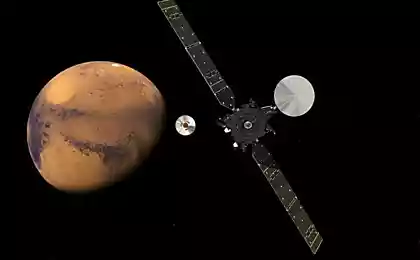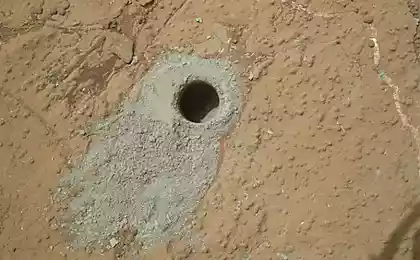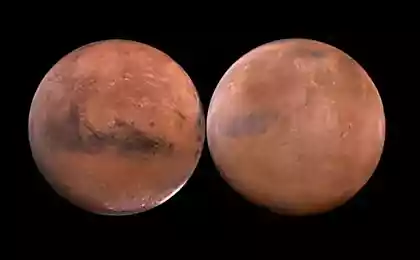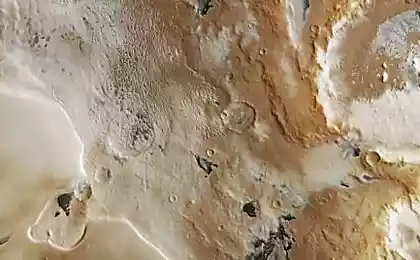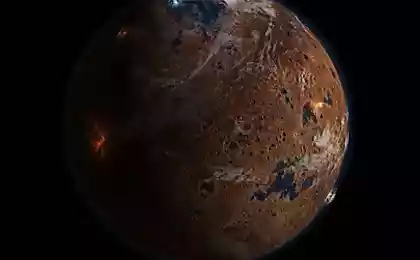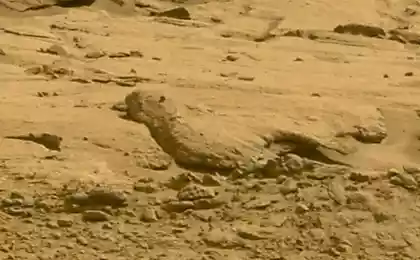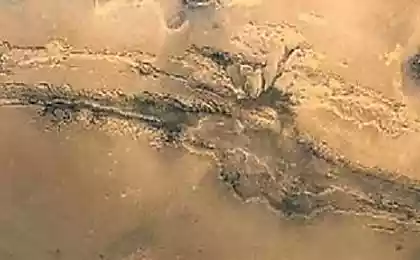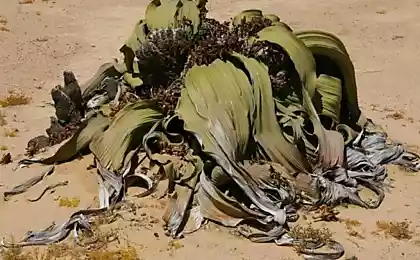1220
Russian instrument will shed light on the history of water on Mars.
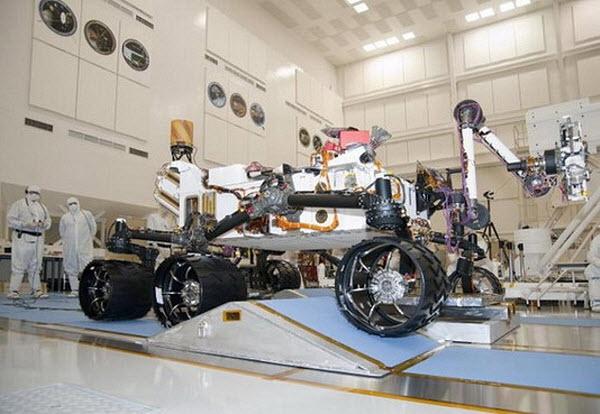
Kuzmin participated in the selection of the landing site for the Mars rover, which should go to the Red Planet in November 2011. Of the more than 30 possible landing sites for scientists ultimately chose Gale Crater. This crater is named in honor of Walter Gale, an Australian banker and amateur astronomer, located south of the equator, on the border of the equatorial plains of Elysium. In the center of the crater with a diameter of about 150 kilometers of mountain height is about five kilometers, which is formed by sedimentary rocks.
According to Kuzmin, this area is of great interest for Russian scientists to develop the instrument DAN (albedo neutron detector, Detector of Albedo Neutron).
This device developed by a group of scientists from the Institute of Space Research Institute (IKI) on the basis of the agreement, NASA and Roscosmos, Russia is a contribution to the project rover. Detector irradiates the surface of the planet of high energy neutrons and flow properties of secondary neutrons determines the content of hydrogen. If the ground a lot of hydrogen, neutrons are actively absorbed by it, and neutron map there are "dark areas", which with a high degree of confidence can be interpreted as the presence of areas with plenty of water or hydrated minerals.
"Our device is designed to search for hydrogen, i.e. water, which can be in several forms, such as in bound form, hydrated minerals, which is typical for middle or equatorial latitudes, or in the form of ice at high latitudes. Gale area in terms of our long history of the instrument interesting aquatic activities that existed at the end of the ancient geological epoch of the planet (from the end of Noah's era) to the middle of the middle period (Gesperiyskoy era), "- said Kuzmin.
Currently, most scientists agree that for about 4 billion years ago, the climate on Mars was warmer and wetter, and was present on the surface of liquid water.
Mars exploration using neutron HEND instrument on board the probe "Mars Odyssey" showed that in the high latitudes of the planet there are a large amount of ice - thick layer of permafrost.
According to Kuzmin, during the wet period were formed sediments rich in clay minerals, and then - rich in sulphates and chlorite.
"In the study of sediments in the crater Gale rover can detect as climate change water conditions, and change the nature of sedimentation in the region," - said Kuzmin.
He noted that the detector can detect DAN presence of water in the soil when its content in percent by weight of the unit. In this area of the crater Gale, according to Handy, falls into the water content in the soil from 5% to 6, 5% by weight.
Interplanetary antiseptic
NASA chose the landing of the new Mars rover - Gale Crater
NASA chose for the new marskhoda is close to the equator region, not the polar regions, where water ice is certainly more to avoid the threat of contamination of Mars terrestrial microorganisms, told RIA Novosti Head of the Laboratory of Space gamma spectroscopy SRI Igor Mitrofanov, who led the development of the instrument DAN. < br /> "We need to avoid the possibility of transfer to Mars terrestrial microorganisms. According to the specifications it can be said to have banned consider planting in areas where there may be ice. Because if failure happens and will happen a hard landing, the hot radioisotope source on board the rover could melt the ice, turning it into the water, and this can lead to the fact that we are contaminated by microorganisms Mars from Earth "- said the scientist.
Unlike previous Mars rovers - "Spirit's" and "Opportunity" - the new Mars rover will receive power only from the radioisotope source, rather than from solar panels.
According to Mitrofanov, project participants almost completely sure that clean water, even in the form of water ice in the crater Gale no.
"Gale Crater has water, but only in a chemically bound state, it is the water that got into the composition of the minerals," - said the scientist.
According to him, the data showed Hendaye in the area "dark areas", but scientists were always clear that this can not be ice.
Alfven waves play an important role in the heating of the solar corona
Generated record magnetic field of 91 Tesla 4



